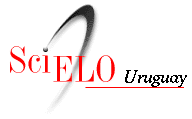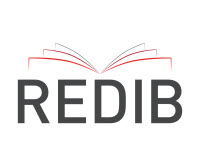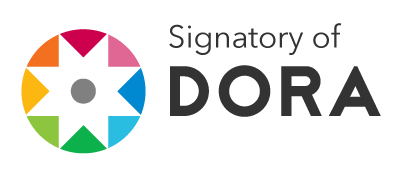Aspectos pandémicos y disfuncionales del régimen de información hegemónico
Resumen
La pandemia de coronavirus en 2020 proporciona condiciones excepcionales para la localización de errores de planeamiento, incluyendo fallas en el proceso informacional que posibilitó las condiciones de la infodemia, aparentemente contradictorias en un momento en que se alcanza un consenso global, unificando visiones del mundo históricamente dispares, de contaminación viral como verdad. A partir de la localización de procesos informativos disfuncionales en términos de comunicación de la verdad, el artículo propone el reconocimiento de patrones culturales activos en prácticas irresponsables de transformación de naturaleza y de comunicación deliberadamente engañosa, que hacen más vulnerables las condiciones de vida.
Descargas
Citas
ADAMS, H. (1918). The education of Henry Adams. Project Gutemberg. Consultado em https://www.gutenberg.org/files/2044/2044-h/2044-h.htm
BADIOU, A. (2002). Para uma nova teoria do sujeito: conferências brasileiras. Rio de Janeiro: Relume Dumará.
BATES, C. e ROWELL, A. (1998). Tobacco explained: the truth about the tobacco industry... in its own words. Londres: Action on Smoking and health (ASH). Consultado em https://www.who.int/tobacco/media/en/TobaccoExplained.pdf?ua=1
BENJAMIN, W. (1996). A obra de arte na era de sua reprodutibilidade técnica. In: Magia e técnica, arte e política: ensaios sobre literatura e história da cultura. São Paulo: Brasiliense.
BERNAYS, E. (1969). The engineering of consent. The Annals of the American Academy. Norman: University of Oklahoma Press. Consultado em http://www.fraw.org.uk/data/politics/bernays_1947.pdf
BERRY, W. (2002). The agrarian stand. Orion Magazine. Consultado em https://orionmagazine.org/article/the-agrarian-standard/
BEZERRA, A. C. (2019). Teoria crítica da informação: proposta teórico-metodológica de integração entre os conceitos de regime de informação e competência crítica em informação. In: BEZERRA, A. C. et. Al. iKRITIKA: estudos críticos em informação. Rio de Janeiro, Garamond. pp 15-72.
BRANDT, A. M. (2012). Inventing conflicts of interest: a history of tobacco industry tactics. American Journal of Public Health, 102, 1, pp. 63-71.
BRILLIANT, L. (2006). Palestra TED Talks. Consultado em https://www.ted.com/talks/larry_brilliant_my_wish_help_me_stop_pandemics
BRISOLA, A., BEZERRA, A. C (2018). Desinformação e circulação de “fake news”: distinções, diagnóstico e reação. Anais do XIX Enancib. Londrina.
BRITO, V. de P., PINHEIRO, M. M. K (2015). Poder informacional e desinformação. In: Tendências da Pesquisa Brasileira em Ciência da Informação, 8, 2. Consultado em: https://brapci.inf.br/index.php/article/view/0000019439/
BROWNELL, K. D., WARNER K. E. (2009). The perils of ignoring history: big tobacco played dirty and millions died. How similar is big food? Milbank Quarterly. 87, 1, 259–294. Consultado em: http://www.ncbi.nlm.nih.gov/pmc/articles/PMC2879177
CHOMSKY, N., HERMAN, E. S. (1988). Manufacturing consent: the political economy of the mass media. Nova Iorque: Pantheon Books, 1988. Kindle e-book.
CURTIS, A. (2002). O Século do Ego / The century of self. Londres: BBC. Consultado em https://youtu.be/eJ3RzGoQC4s
FROEHLICH, T. J. (2017). A not-so-brief account of current information ethics: the ethics of ignorance, missing information, misinformation, disinformation and other forms of deception or incompetence. Textos universitaris de biblioteconomia i documentació, 39. Consultado em: http://bid.ub.edu/en/39/froehlich.htm
FROEHLICH, T. J. (2019). The role of pseudo-cognitive authorities and self-deception in the dissemination of fake news. Open Information Science, 3, 115–136.
FROEHLICH, T. J. (2020). 10 lessons for the age of disinformation. (under revisions) for a book, Navigating Fake News, Alternative Facts and Misinformation in a Post-Truth World. Dalkir, K (Ed). Montreal: University of Montreal.
GONZÁLEZ DE GÓMEZ, M. N. (2002). Novos cenários políticos para a informação. Ciência da informação, 31, 1, 27-40.
MATELART, A., MATTELART, M (2008). História das teorias da comunicação. São Paulo: Loyola.
MERRIAM-WEBSTER online (2020).Words We're Watching: 'Infodemic'. Consultado em https://www.merriam-webster.com/words-at-play/words-were-watching-infodemic-meaning
MSA – Master Settlement Agreement (1998). Consultado em https://publichealthlawcenter.org/sites/default/files/resources/master-settlement-agreement.pdf
ORGANIZAÇÃO MUNDIAL DE SAÚDE (2020). Coronavirus disease 2019 (COVID-19) Situation Report – 86. Consultado em http://www.who.int/docs/default-source/coronaviruse/situation-reports/20200415-sitrep-86-covid-19.pdf?sfvrsn=c615ea20_6
ORGANIZAÇÃO DAS NAÇÕES UNIDAS (2020). UN tackles ‘infodemic’ of misinformation and cybercrime in COVID-19 crisis. Nova Iorque: Departamento de Comunicação Global da ONU. Consultado em https://www.un.org/en/un-coronavirus-communications-team/un-tackling-%E2%80%98infodemic%E2%80%99-misinformation-and-cybercrime-covid-19 .
PROCTOR, R N., SCHIEBIENGER, L. (Eds.) (2008). Agnotology. The Making and unmaking of ignorance. Stanford: Stanford University Press.
PRSA – Public Relations Society of America (2020). Silver Anvil Awards. Consultado em: https://www.prsa.org/conferences-and-awards/awards/silver-anvil-awards
RICHTEL, M. (2020) W.H.O. Fights a Pandemic Besides Coronavirus: An ‘Infodemic’. Jornal New York Times. Consultado em https://www.nytimes.com/2020/02/06/health/coronavirus-misinformation-social-media.html .
ROTHKOPF, D. J. (11 may 2003). When the Buzz Bites Back. Jornal The Washington Post. Consultado em: https://www.washingtonpost.com/archive/opinions/2003/05/11/when-the-buzz-bites-back/bc8cd84f-cab6-4648-bf58-0277261af6cd/
SCHRADER, A. M (1986). The Domain of Information Science: problems in conceptualization and in consensus-bilding. Information Services & Using, 6, 169-205.
TAUBES, G., COUZENS, C. K. (2012). Big Sugar’s Sweet Little Lies How the industry kept scientists from asking: Does sugar kill?. Mother Jones Magazine. Consultado em https://www.motherjones.com/environment/2012/10/sugar-industry-lies-campaign/
TYE, L. (1998). The father of spin: Edward L. Bernays and the birth of Public Relations. New York: Crown. Kindle e-book.
WOLF, M. (1995). Teorias da comunicação. Lisboa: Editorial Presença.
ZAROCOSTAS, J. (20 feb 2020) How to fight an infodemic. The Lancet Journal: World Report. 395, 10225, 676. Consultado em http://www.thelancet.com/journals/lancet/article/PIIS0140-6736(20)30461-X/fulltext
Derechos de autor 2021 Flavio Lofêgo Encarnação, Marco Schneider, Arthur Coelho Bezerra

Esta obra está bajo licencia internacional Creative Commons Reconocimiento 4.0.







.jpg)




















